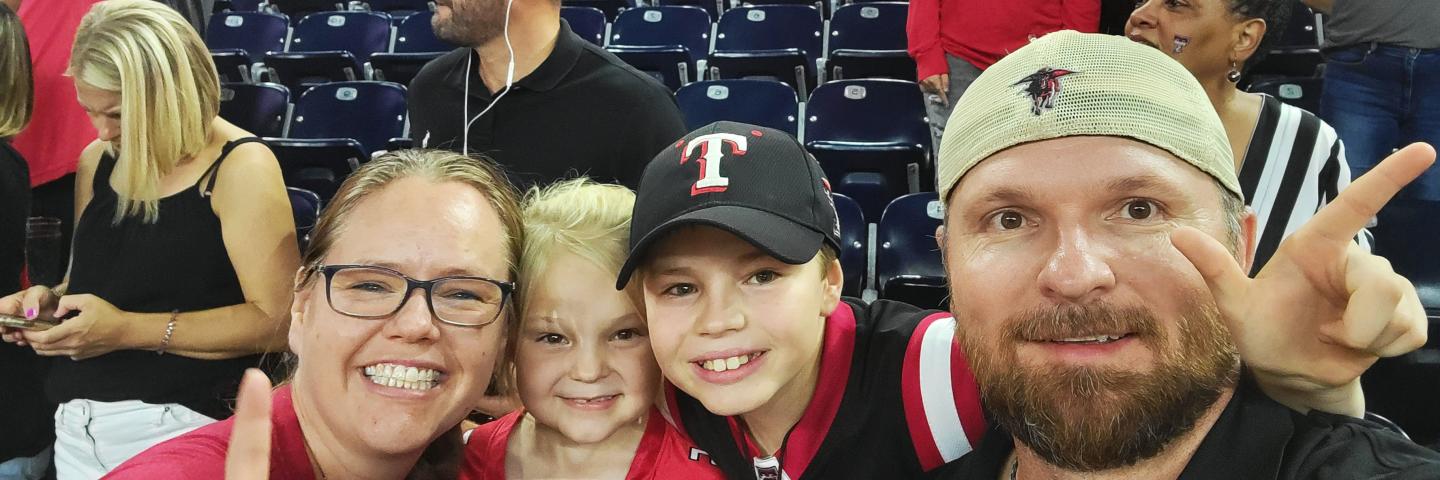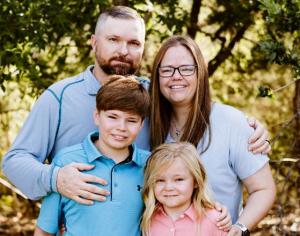NRCS Texas district conservationist lives to serve, serves to learn

NRCS Texas District Conservationist Kathleen Traweek out of Brownwood, Texas, helps improve land and inspires landowners.
By Tyler Maxwell, CRAC Zone 5 Representative
Along the eastern edge of the Llano Estacado sits the community of Southland, Texas. The area is known for cotton farms and diverse rangeland. Kathleen Traweek, District Conservationist for United States Department of Agriculture – Natural Resources Conservation Services (USDA-NRCS) in Brownwood, Texas was raised on a cotton farm in Southland and had the pleasure to call it her home.
The farm totaled over 6,500 acres and crossed the Lynn, Garza, and Lubbock County lines. Traweek recalls how involved she was in all aspects of cotton farming from driving the tractor, plowing, checking irrigation, spraying weeds, fixing equipment, and always being a helping hand to her father.
During Traweek’s childhood she remembers that the family even grew peppers commercially which required they transplant hundreds of acres of seedlings to ensure the best pepper crop. As Traweek grew up and started school she went to a private catholic school through the 8th grade, then her parents enrolled her in Slaton High School for the start of her freshman year. Throughout high school, Traweek was heavily involved in agricultural classes, FFA, and livestock shows where she showed pigs. All of this built upon the solid agriculture foundation from her childhood.
Traweek always knew she had a passion for agriculture and that one day she would have a livelihood with agriculture roots.

The hard work of helping on the cotton farm and her leadership experience gained through the FFA led Traweek to enroll at Texas Tech University upon high school graduation.
Upon entering her freshman year of college Traweek was stuck with a decision for her major. She knew she had always wanted to pursue an Agriculture Engineering degree so she could design and learn more about drip irrigation systems. Traweek’s time spent with her dad, being “elbow deep in mud” working on irrigation systems always left her wanting to learn more about the engineering side of irrigation systems.
The main problem was that the Agricultural Engineering degree was no longer offered at Texas Tech and was now an exclusive degree to Texas A&M University in College Station, Texas, and Traweek knew for a fact she was a Texas Tech Red Raider through and through.
Traweek declared to start pursing an Environmental Conservation of Natural Resources degree with a focus on water conservation. Shortly after completing her first year at Texas Tech, she switched and made her final decision to pursue a Range Management degree after taking plant identification courses and absolutely loving the subsequent courses that were associated with the degree. Traweek found it ironic that she declared for a degree in Range Management since her family cotton farm did not include one single acre of rangeland. She saw it as an opportunity to learn about something she did not have any previous experience or knowledge in.
Traweek’s summers while at Texas Tech were spent in the classroom as well each year until her last summer as an undergraduate student. She applied for a Texas Parks and Wildlife Department internship and was placed at the Gene Howe Wildlife Management Area in Canadian, Texas.
As Traweek entered her last semester at Texas Tech following her internship, she was placed on the soils judging team. The team went on to be successful at numerous events where they placed 1st at Regionals and Traweek was the 3rd high individual in the Region.
Following graduation in December of 2006, Traweek married Kyle Traweek, whom she met while enrolled at Texas Tech University. After a year of being married, Traweek accepted a part-time job with the Concho Soil Water Conservation District (SWCD) as a technician. The Zone 2 ASTC(FO) at that time – Elisha Kuehn for USDA-NRCS met Traweek and learned she had a Range Management degree and quickly recruited Traweek for the Career Internship Program (CIP). Traweek would go on to train in the Eden and Big Spring field offices.
After working in the Eden and Big Spring field offices for 10 years, Traweek moved to Brownwood, TX where she received a position as the Soil Conservationist. In the summer of 2022, she received an in-office promotion and was selected as the District Conservationist in the Brownwood field office.
During her time in the Brownwood field office with USDA-NRCS, Traweek has served on the Texas Civil Rights Advisory Committee (CRAC) as the Zone 5 representative for two years and as the Texas CRAC Chair for the last three years.
Traweek states, this has been the most challenging part of her 15-year career with USDA-NRCS - because of the impact the COVID-19 pandemic had on the workforce. It however did lead Traweek to be innovative in finding ways to collaborate and achieve the goals not only of the Texas CRAC but for USDA-NRCS.
When Traweek was named, the Texas CRAC chair it made her step out of her comfort zone. She was now responsible for being charge of setting up the quarterly meetings, running them, and providing direction and guidance to the members she serves with. Her time spent on the Texas CRAC has given Traweek the confidence to step up in times of need to be a leader and take charge.
Traweek states that one of the best things about working for USDA-NRCS is the friendships she has gained over the years. She has made countless friendships with coworkers and agricultural producers at every field office she has worked at. NRCS has also been a great place to work for because of the flexibility in her work schedule allows for Traweek to improve her work-life balance every year. Due to the flexibility, she can focus on her family and be there for her two children’s various sports and school activities. If she’s not following her children from event-to-event, Traweek’s past times include spending time with her family and friends, hunting, target shooting, fishing, going to the movies, and most importantly cheering on those Texas Tech Red Raiders in all sports.
Traweek gets the most joy from her career when she gets a follow-up text message from a producer saying how well their newly seeded grass is doing, how their cows now have water through a watering system they installed with NRCS’ help, or how the improved irrigation system through NRCS has improved their crop harvest. These small notifications from producers remind Traweek of how much she loves her job.
Within the last four years, Traweek has had more of a challenge with work than normal due to being diagnosed with an autoimmune disease called Palindromic Rheumatism – a form of Rheumatoid Arthritis. This diagnosis has forced Traweek to adapt her work environment due to the ever-changing pain. Most of the time it does not affect her work performance, but when it flares up, it can be debilitating, and she says her co-workers have been the biggest blessing with how understanding they have been through it all. When Traweek was initially diagnosed she felt as if she should keep her diagnosis a secret. She has since learned that by sharing her diagnosis it brings awareness to those that may not understand a disability or a disease.
Traweek does hope by being honest about her diagnosis that it gives courage to those who also have limitations to be open and honest so that we can understand each other better and improve the workplace overall.
Traweek will tell all NRCS employees to hold on to your morals and conscience everyday you come to work.
Honesty gains you respect, and respect from your work peers will take you as far as want to go. Always make sure to listen more than you speak and be a continuous learner. Take the opportunity to learn from the newer and older employees around you.
Lastly, Traweek emphasizes, “You don’t have to have all the answers to every question, this will teach you to reach out to an expert in any diverse subject and will improve the workforce around us.”

